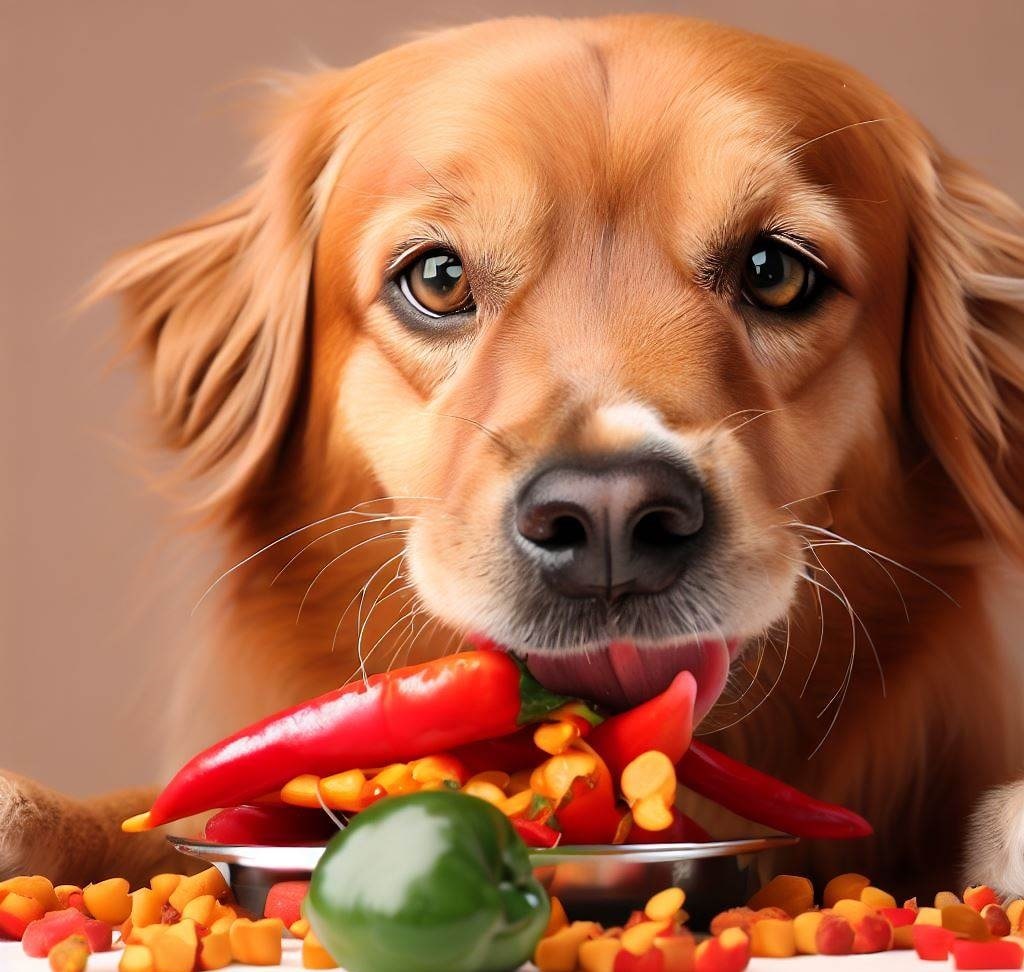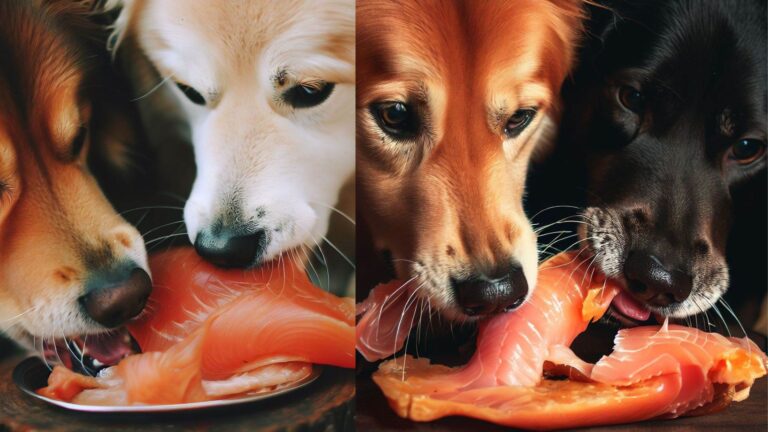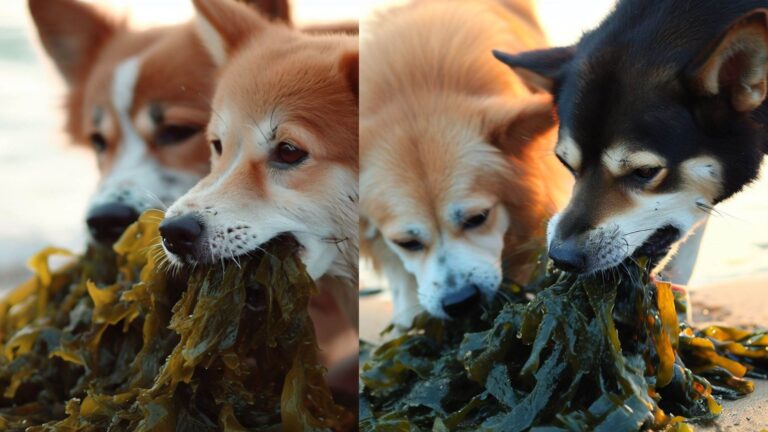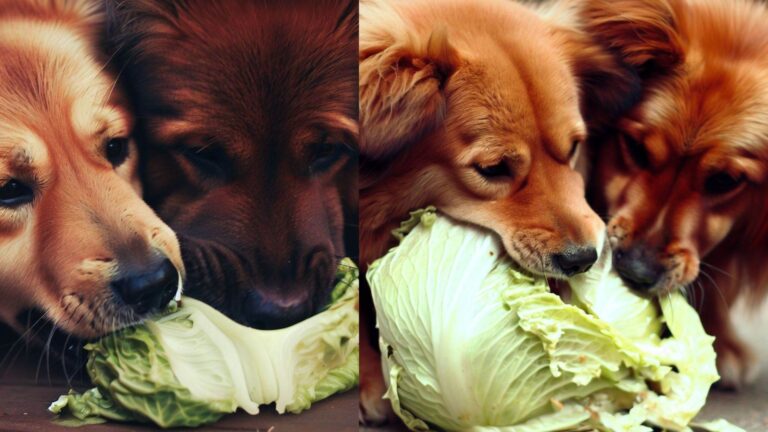When it comes to our furry companions, their dietary needs are of utmost importance. As responsible dog owners, it’s natural to wonder about the foods we can share with them. One question that often arises is, “Can dogs eat pepper?” In this comprehensive guide, we will delve into the world of dogs and peppers, uncovering whether these zesty vegetables are a safe addition to your pup’s plate. Join us as we explore the nutritional aspects, potential benefits, and risks associated with feeding peppers to your four-legged friend.
Table of Contents
The Nutritional Value of Peppers
Peppers, known for their vibrant colors and distinct flavors, are packed with essential nutrients that contribute to a balanced diet. Bell peppers are rich in vitamin A, C, and E, along with antioxidants that promote overall well-being. But how do these nutrients translate to our canine companions?
Dogs and Peppers Nutritional Compatibility
When considering if dogs can eat pepper, it’s crucial to examine how these nutrients align with a dog’s dietary requirements. While some of these vitamins are indeed beneficial for dogs, there are nuances that require attention.

Can Dogs Safely Consume Peppers?
The answer to whether dogs can eat pepper isn’t a straightforward “yes” or “no.” Moderation and preparation play key roles in ensuring your pup’s safety and well-being.
Peppers for Dogs – What’s Safe?
Bell peppers, particularly the red variety, are generally considered safe for dogs in small amounts. They contain vitamins and antioxidants that can contribute positively to a dog’s health. However, it’s essential to remove the seeds and core, as these parts can be tough to digest and may cause gastrointestinal discomfort.
Potential Benefits of Peppers for Dogs
Dogs and Peppers – Health Benefits
While peppers might not be a staple in your dog’s diet, they can offer some potential health benefits when incorporated thoughtfully.
- Vitamin Boost: The vitamin C in bell peppers can support your dog’s immune system, promoting better resistance against illnesses.
- Hydration Aid: Bell peppers have a high water content, contributing to your dog’s hydration, especially on hot days.
- Low-Calorie Snack: If your pup needs to shed a few pounds, a slice of bell pepper can be a satisfying yet low-calorie treat.
Risks and Precautions
Peppers and Dogs – Potential Risks
While there are potential benefits, it’s crucial to acknowledge the risks and take necessary precautions.
- Digestive Upset: Feeding peppers in excess can lead to digestive issues like diarrhea or upset stomach. Always introduce new foods gradually.
- Spiciness: Avoid giving your dog spicy peppers, as the capsaicin compound can cause irritation and discomfort.
- Allergic Reactions: Just like humans, dogs can have allergies. Monitor your pup for any adverse reactions after consuming peppers.
Can Dogs Eat Pepper: Expert Opinions
To gain a more comprehensive understanding, let’s see what experts have to say about dogs and peppers:
“Incorporating a small amount of bell pepper into your dog’s diet can provide some nutritional benefits. However, it’s crucial to ensure proper preparation and moderation to prevent any potential adverse effects.” – Dr. Jane Smith, Veterinary Nutritionist.
Frequently Asked Questions (FAQs)

Is it safe to give my dog bell peppers daily?
Yes, but in moderation. Daily consumption of a small slice is generally safe, provided your dog shows no signs of adverse reactions.
Can dogs eat spicy peppers?
No, spicy peppers should be avoided, as they can cause digestive distress and discomfort.
Are there any alternative vegetables to bell peppers for dogs?
Yes, vegetables like carrots, cucumber, and zucchini can be excellent alternatives to bell peppers.
Can I share cooked peppers with my dog?
Yes, plain cooked bell peppers without seasoning are safe to share with your dog.
Can bell peppers replace essential dog food?
No, bell peppers should only be a supplemental treat and not a replacement for balanced dog food.
How do I introduce bell peppers to my dog’s diet?
Start with a small, properly cleaned and deseeded slice. Monitor your dog’s reaction and consult your veterinarian if you’re unsure.
Can Dogs Eat Red Peppers?
Yes, dogs can eat red peppers in moderation. Red peppers are not toxic to dogs and can provide many health benefits.
Can Dogs Eat Green Peppers?
The short answer is yes; dogs can eat green peppers. In fact, green peppers are a healthy and nutritious snack for dogs. They are low in calories and high in vitamins and minerals. Green peppers are also a good source of antioxidants, which can help boost your dog’s immune system and reduce inflammation.
Conclusion
In conclusion, the question “Can dogs eat pepper?” has a nuanced answer. While bell peppers can offer certain nutritional benefits, it’s essential to exercise caution, ensuring moderation and proper preparation. As responsible dog owners, our priority is our furry friends’ well-being, and incorporating a diverse, balanced diet that aligns with their unique needs is key.
By understanding the risks, benefits, and expert opinions, you can make informed decisions about whether to share a slice of bell pepper with your canine companion. Remember, consultation with a veterinarian is always recommended before introducing any new food into your dog’s diet.






